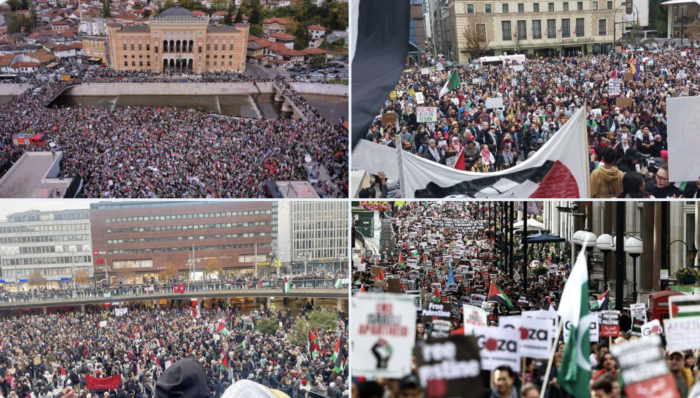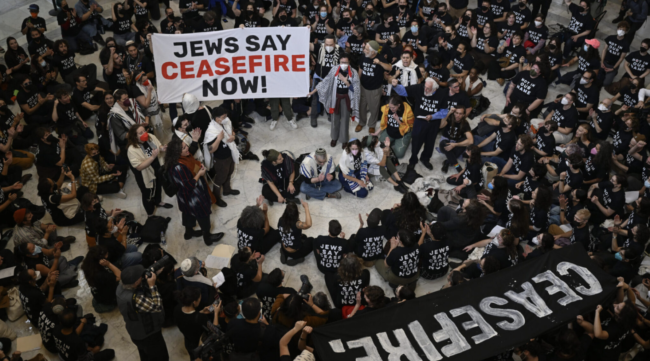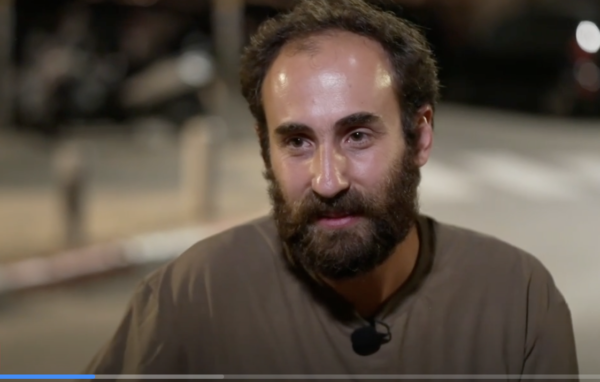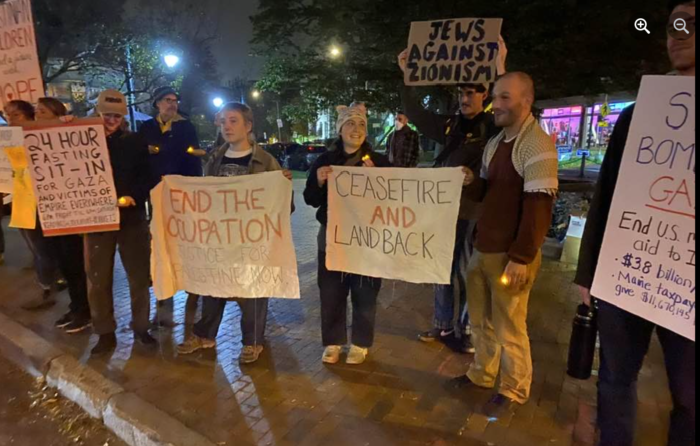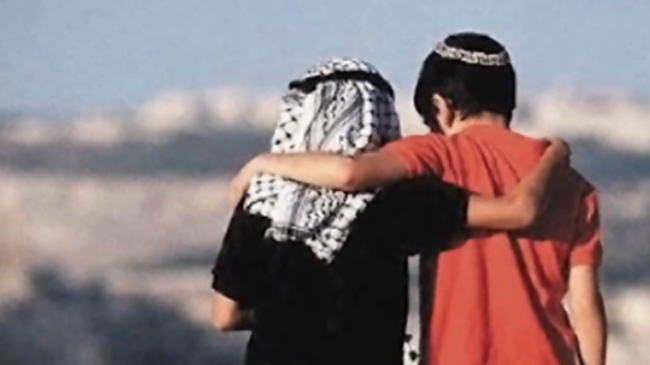In our war-torn universe I long for the world to embrace John Lennon’s famous lyrics, “Give peace a chance.”
But peace is off the table when it comes to Gaza, whose homes, hospitals, and schools are being bombed around the clock, drawing comparisons to the fire-bombing of Dresden during WW ll.
On top of this, water, food, fuel, and electricity are rapidly running out.

To date 2300 children in Gaza have been killed. Fuel is about to run out, threatening the lives of the 130 babies on incubators
As Gaza comes close to being wiped out the Biden administration looks away, ignoring humanitarian appeals for a cease-fire. Life in Gaza is about to get even worse once Israeli troops on Gaza’s border launch their ground invasion.
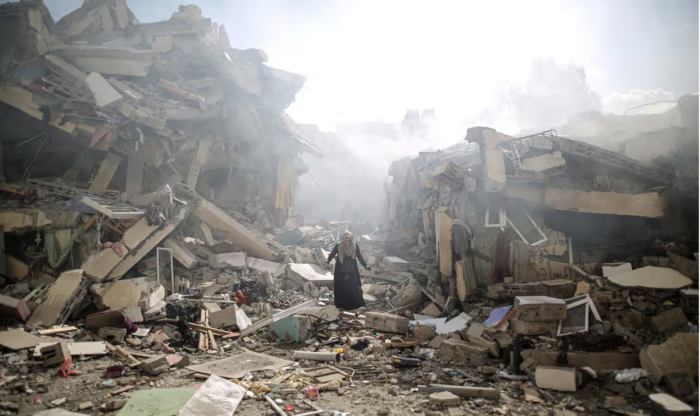
A resident of Gaza City amid the rubble of residential buildings after Israeli airstrikes. (Guardian)
The US has become consumed with war. We are upping our long history of supplying Israel with weapons as Biden asked Congress last week to approve yet more money for Israel. His new $106 billion, includes $61 billion for Ukraine, $14 billion for Israel, $4 billion to build up a military presence at the Mexican border, along with $4 billion for Taiwan, and an undisclosed amount in humanitarian aid for Gaza.
If there is a silver lining in Gaza’s tragedy, it’s this: Gaza’s plight has given new life to the peace movement, not just in the US, but globally with supporters for Palestine flooding city streets from Stockholm to Pretoria, South Africa, bearing signs, “Stop the Genocide,” and “We are all Palestinians.”
The marches are growing exponentially. Yesterday 300,000 people turned out in London in support of Palestine, making it London’s largest ever demonstration in support of Palestine.
The protests are not one-sided. Many in the Jewish community are standing for peace. On Sunday Orthodox Jews in Jerusalem staged a demonstration appealing for a cease-fire.
On October 18th Jewish Voice for Peace had a record turnout in Washington when 500 protesters took over the Cannon Office Building wearing black shirts that read, “Not in our Name.”
Rabbi Linda Holtzman, one of the two dozen rabbis at the action, told a reporter: “Where there is no justice, I have to be a voice for justice.”
While mainstream news highlights Israeli Jews hungry for revenge, there are numerous Israeli Jews who speak out compassionately for Gaza. In a recent interview, with Reuters, Yonatan Zeigen, son of missing peace activist, Vivian Silver, pleaded, “You can’t cure killed babies with more dead babies,”
Biden’s refusal to call for a cease-fire in Gaza has resulted in pushback within his administration. Josh Paul, a career officer in the State Department, resigned last week, “objecting to Biden’s blind support for one side leading to policy decisions that are . . contradictory to the very values we publicly espouse.”
On October 19th 500 Congressional staffers signed an open letter urging lawmakers to demand a Gaza cease-fire.
Peace has a chance, but it remains an uphill battle. I’m encouraged by the growing number of young people joining old timers in demonstrations across the country. In my city of Portland, Maine a recent rally in support of Palestine had as many new young recruits as veteran peace workers.
The current peace movement emphasizes our shared humanity, resisting the polarization of government heads who firmly position themselves taking sides, spewing vitriol against the other.
Another 60’s slogan comes to mind, “Make love, not war.”
Imagine what we could do if our major national expenditure wasn’t for weapons, but for building caring communities. Money for deadly weapons could be directed to universal health care, good schools, reliable public transportation, and affordable housing. Providing for basic human needs would relieve our citizens of being burdened by debt with more time to engage with one another, allowing love to flourish.
